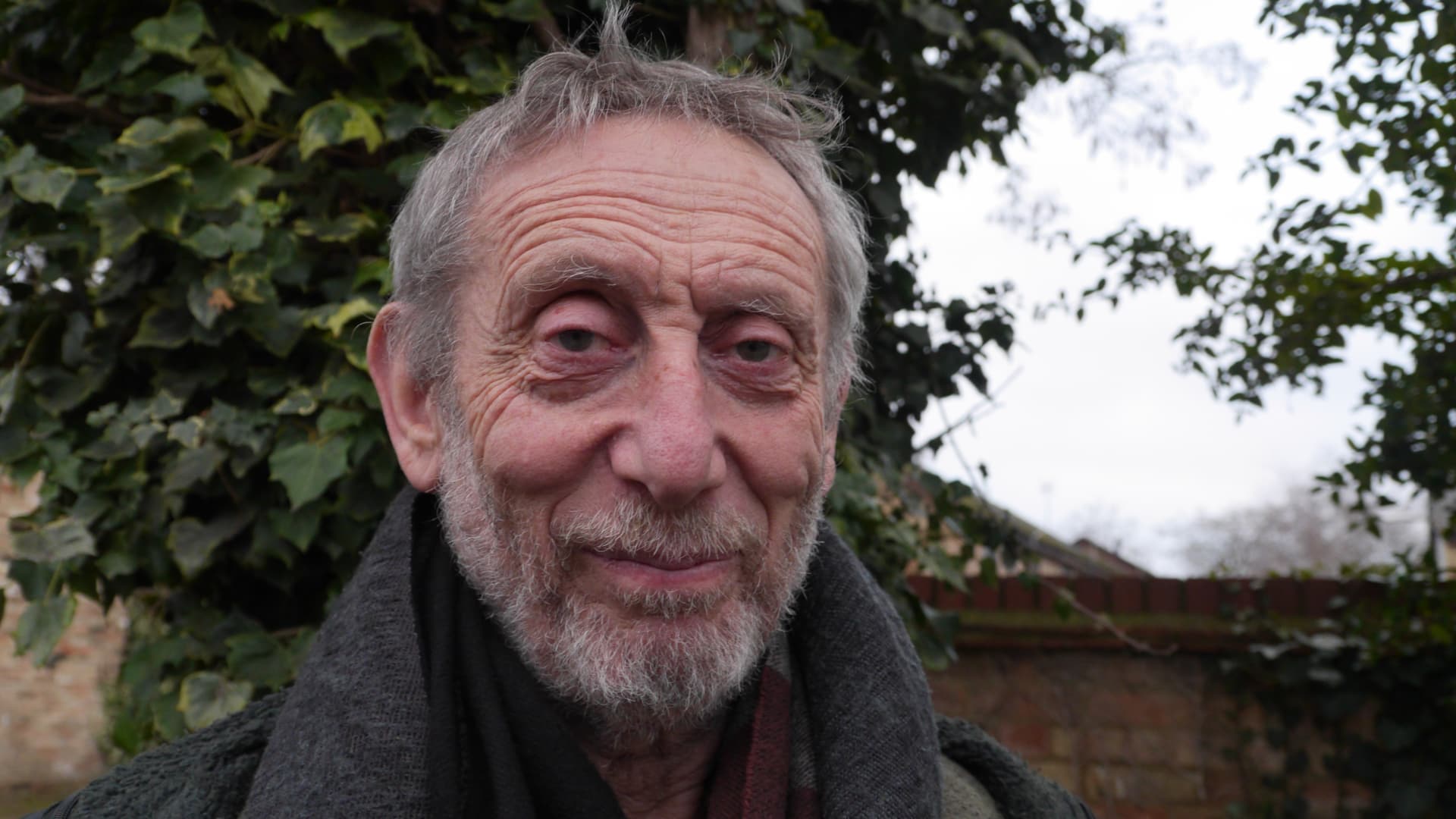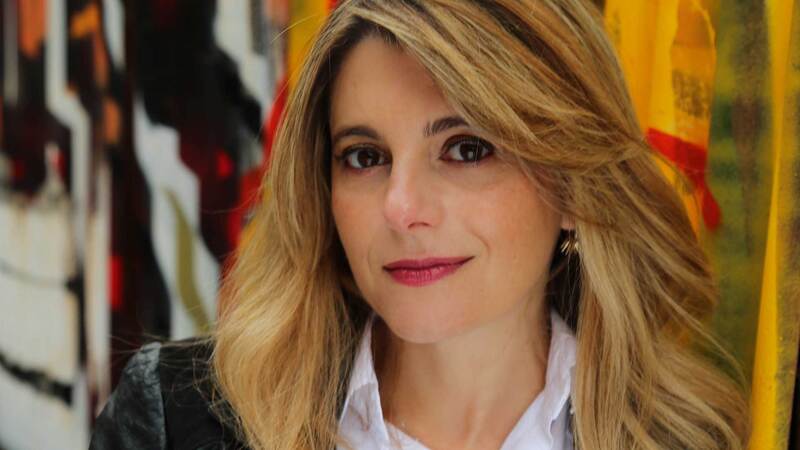You are viewing your 1 free article this month. Login to read more articles.
Michael Rosen | 'I don’t think I realised, until maybe August, how ill I’d been'
 Caroline Sanderson
Caroline SandersonCaroline Sanderson is a non-fiction writer, editor and books journalist. Her books include a travel narrative, A Rambling Fancy: in the F ...more
A spell in intensive care after contracting Covid-19 led Michael Rosen to write a moving anatomy of his illness and recovery

Caroline Sanderson is a non-fiction writer, editor and books journalist. Her books include a travel narrative, A Rambling Fancy: in the F ...more
"Will I wake up?"
"There’s a 50:50 chance."
Admitted to intensive care in late March 2020, desperately ill with Covid-19, this is the exchange Michael Rosen had with a doctor, before being placed in an induced coma. More than a month later, he regained consciousness with little idea of what had happened, why he was in hospital, or how much time had elapsed. After long weeks of intense rehabilitation, he was able to return home in July. The effects of “long Covid” continue to plague him, however, including a debilitating loss of vision in his left eye, and of hearing in his left ear.
The form I have in my head is much more fragmentary, it’s the way my mind works. I see it a bit like a stained-glass window or a kaleidoscope: lots of little bits which go to make up the whole
It’s perhaps not surprising that this prolific polymath of a writer—whose published work encompasses both serious books for adults, such as The Disappearance of Emile Zola: Love, Literature and the Dreyfus Case, as well as classic children’s works such as We’re All Going on a Bear Hunt—has now produced a book about his experience. What is remarkable is that he has done so as quickly, and as beautifully. Many Different Kinds of Love: A Story of Life, Death and the NHS charts the story of his illness and recovery in a series of sometimes dark, sometimes wry and funny prose poems, interspersed with bedside notes addressed to him by his nurses, urging him on as he battled the virus. It’s a stirring paean to life and to love; as well as a powerful tribute to the “strangers who tried so hard” to keep him alive.
When we speak via a video call, I first ask Rosen how he is and discover that he underwent a painful eye operation only three days prior to our interview. “It’s a complicated business: there’s a mixture of glaucoma and damage to the optic nerve. At the moment my eye is completely fogged—I can see a bit of light, but there’s no vision. Which is quite disorienting. I’m also deaf in my left ear, so I’m kind of lop-sided and if I go outdoors, to the supermarket, for example, I have to go about quite gingerly. But the rest of me isn’t too bad.”
The writing of Many Different Kinds of Love began not with publication in mind, he explains, but as a way of piecing together exactly what had happened to him. “I don’t think I realised, until maybe August, how ill I’d been. Even though poor Emma [Rosen’s wife] kept explaining it to me over and over again, I still hadn’t fully copped that I had been one of those people you see on the telly, lying inert with tubes coming out of them. I lost all sense of continuity and order; and for somebody like me, who is pernickety about consciousness and sequence and chronology, that’s pretty disconcerting.”
Nevertheless, Rosen’s writing instinct returned almost immediately: he even wrote a children’s book during the time he spent in a London rehabilitation hospital in June (Rigatoni the Pasta Cat will be published by Andersen Press in April 2021). And as soon as he could, he began to make the kind of jottings that have served him well in the past, including after his son Eddie died from meningitis at the age of 18 in 1999. The notes he made then became Carrying the Elephant: A Memoir of Love and Loss, a book that Many Different Kinds of Love resembles in form. Its series of short prose poems is also a highly appropriate way to convey the varying states of consciousness which characterised Rosen’s experience of Covid-19. “I take my hat off to people who can write about these things in long form; who can put it all into some kind of narrative. The form I have in my head is much more fragmentary, it’s the way my mind works. I see it a bit like a stained-glass window or a kaleidoscope: lots of little bits which go to make up the whole.”
The book’s title comes from a strange recurring dream Rosen had while in hospital. “In the dream, there was this German man coming towards me, wearing a bib and brace and standing next to a beat-up old 1950s tractor. He was presenting me with a manifesto he’d written about the many different kinds of love we must have: for our lovers, and our children, our parents, and so on. But also the kind of love we must have for each other if we are to survive the terrible divisions and hate we are seeing now.” So the dream inspired this book? “I’m not taking credit for the manifesto. The man in my dream came up with it, not me,” responds Rosen. He also thinks of the book as “a contemplation on recovery, and on death”:you could equally see it as a powerful riposte to those who deny the gravity of Covid-19.
Many Different Kinds of Love will also include original illustrations depicting the author by his fellow former children’s laureate, Chris Riddell. “We’ve done lots of live children’s book events together, and sometimes he does funny drawings of me behind my back on stage. The audience starts laughing, and I go: ‘What are you doing, Chris... What are you doing?!’ His illustrations for this book are so striking and affecting,” Rosen tells me.
A particularly heart-rending moment in the book comes when Rosen says to a physiotherapist, who is helping him learn to walk again: “I’m sure I won’t be well enough/to stand in front of/500 children/ever again.” While it is of course many months since Rosen, a famously brilliant performer (there are more than half a million followers of his YouTube channel of his children’s poems and stories) has been able to go into schools in person, he has started to do school events once more via video-conferencing site Zoom. He shows me how he is learning to use the frame of the computer screen to comic effect, for example while reciting his seminal poem, “Chocolate Cake”.
While we can rejoice at this return to form, Many Different Kinds of Love is a book that reminds us that even for those who survive Covid-19, the physical after-effects can be long and debilitating. And amid the mood of optimism that has come with the news of impending vaccination, Rosen remains angry about the fatal consequences of what he considers the government’s failure to impose a swift enough lockdown early in 2020, despite the clear and urgent warnings being issued by the World Health Organisation. Only days before the virus struck him, the now 74-year-old Rosen appeared on the “Today” programme on BBC Radio 4, protesting the idea that the elderly were somehow a dispensable casualty of the pandemic; “the pernicious notion being put about that ‘Well, we’re going to lose the over-70s, but at least civilisation will go on’”. While he is clearly still physically frail, Rosen’s ever-enquiring mind has lost none of its intellectual playfulness.
Our wider conversation takes in Daniel Defoe’s Journal of a Plague Year, Marshall McLuhan, “Under Milk Wood” by Dylan Thomas, and the joys of Yiddish, including the fascinating origins of the word “schmaltz”. There is nothing in the least “schmaltzy” about Different Kinds of Love, however. It is as vivid and true and honest as Rosen hoped it would be. “I don’t know whether all writers feel this, but I yearn for a kind of authenticity, and I measure what I’ve written against a yardstick of how I actually felt at the time. And if the two chime together, I go: ‘Yes!’ That’s what I’ve tried to do with this book too.”








